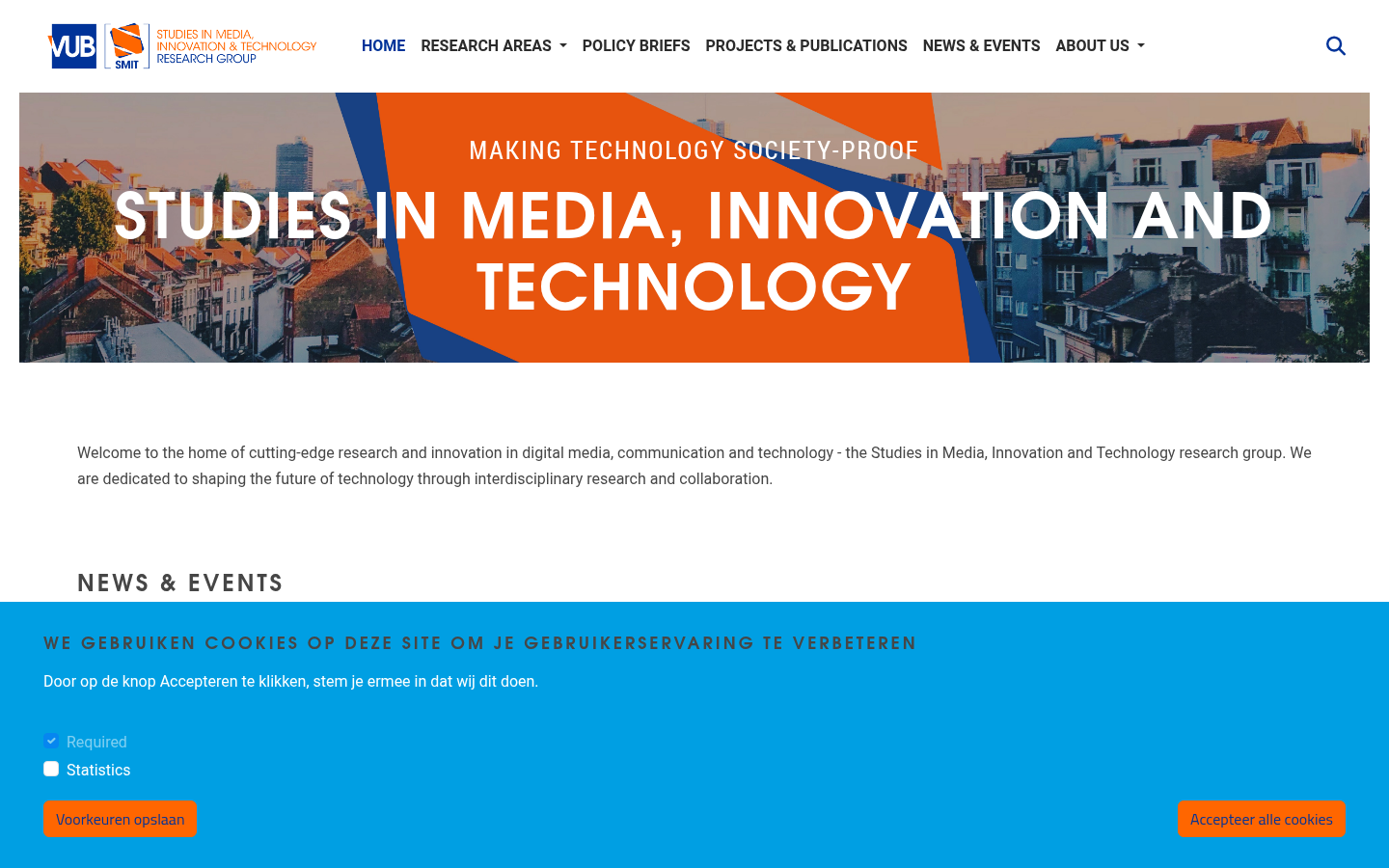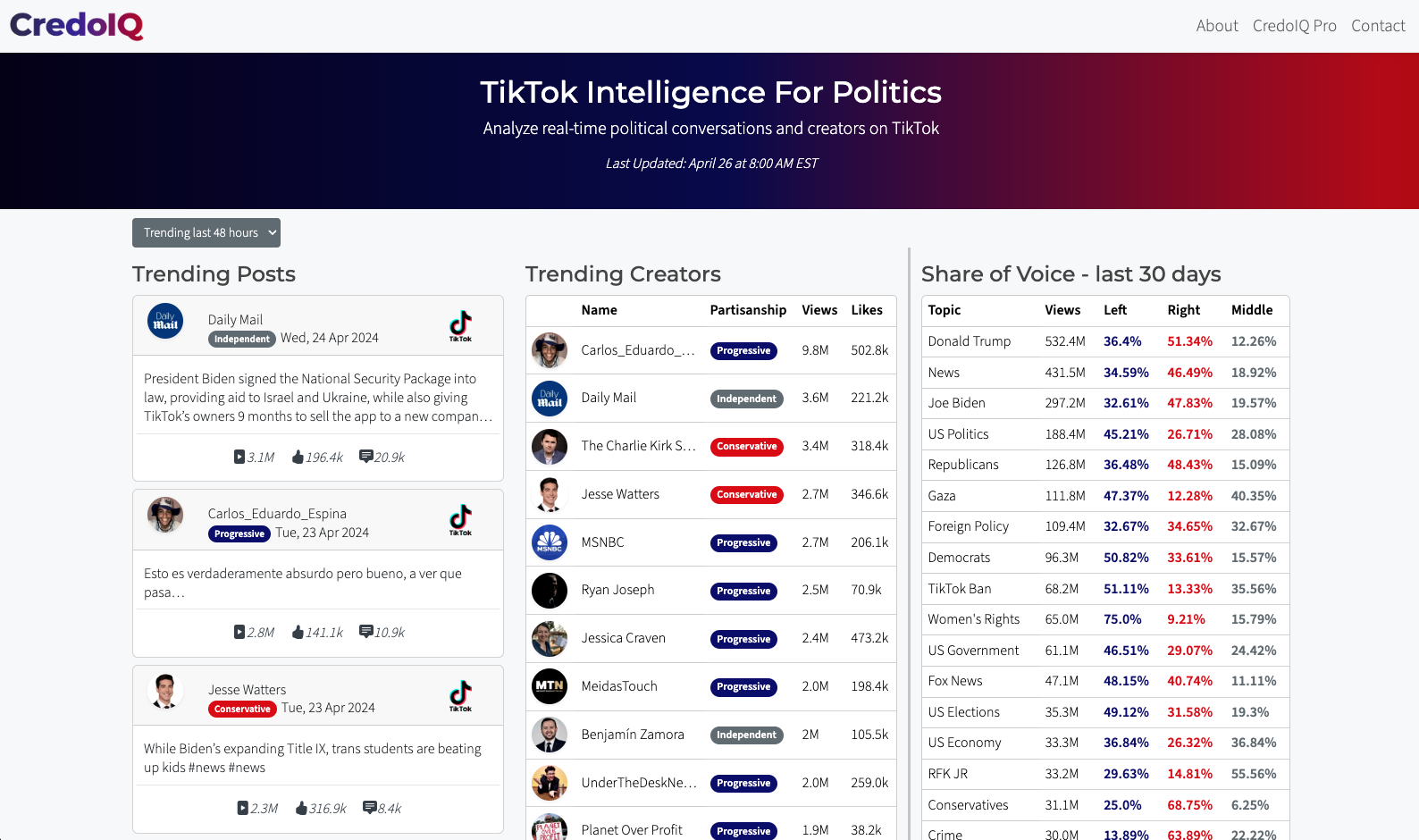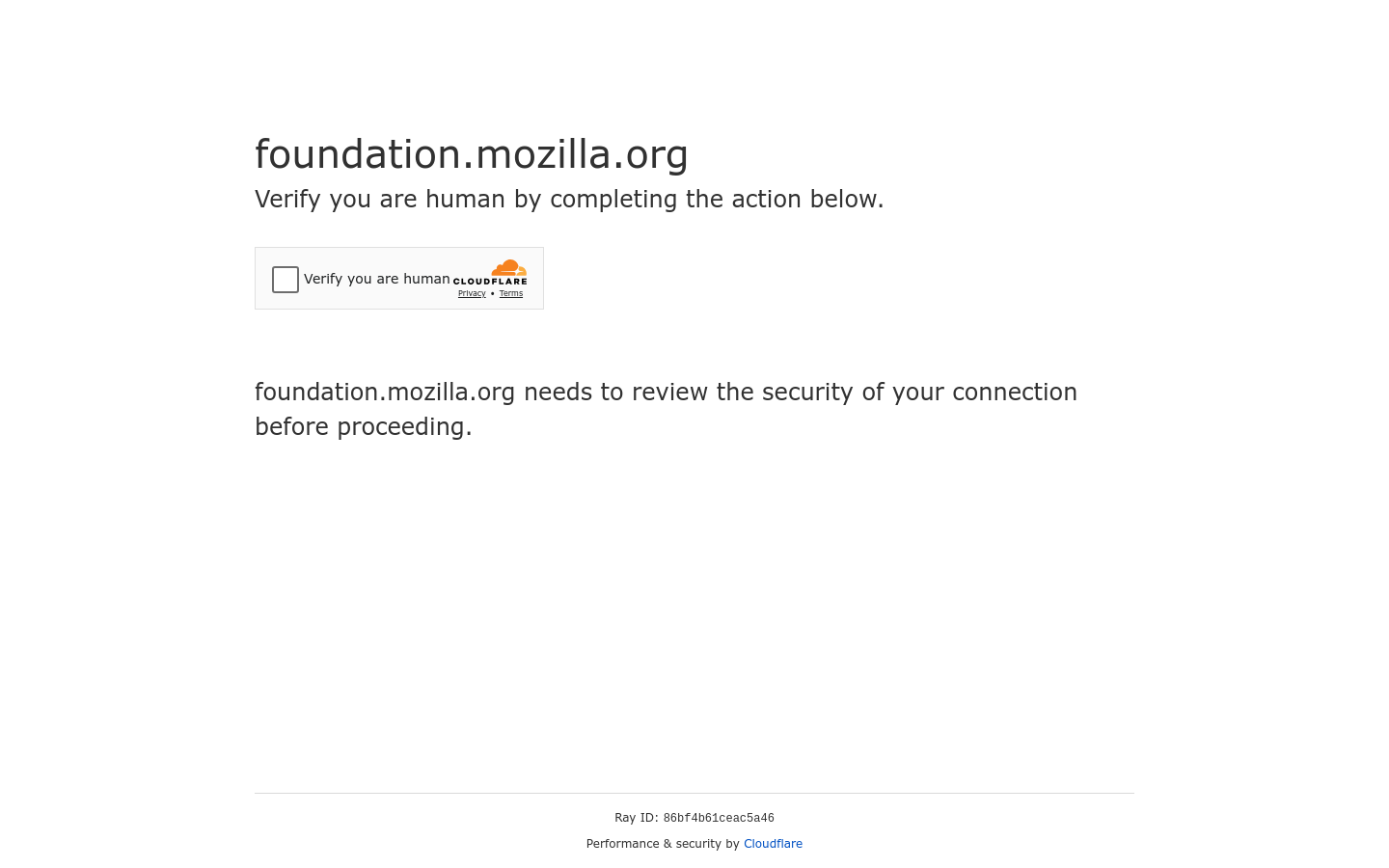Civic Tech Field Guide
Sharing knowledge and productively growing the fieldThe Tech > Media > Media and social media analysis - (141)
Tools and datasets that allow us to quantify and study how an idea, meme, or campaign moves through the media ecosystem. This work is important to understanding why we’re talking about certain stories, considering how news events are framed by competing actors, and thinking about our news blindspots that leave us uninformed on entire topics or parts of the world.
Showing 141 Results

Listening Vietnam
HanoiChúng tôi cung cấp đánh giá tổng quan, cụ thể, và hiệu quả, sử dụng social listening tools và là đối tác chiến lược của Viettel Reputa.

Guardoni is a free software automated web scraper, used to collect data about platforms as Youtube and Tik Tok.

CIB Mango Tree
Washington, DCWe are a collaborative and open-source project to develop software that tests for coordinated inauthentic behavior (CIB) in datasets of online activity.

Project Ion
Bucharest, Romania"Developed by Romanian researchers, Ion’s main task will be to scan social networks to inform the government “in real time of Romanians’ proposals and wishes” - The Guardian quoting the press release

Phoenix
CaliforniaPhoenix is an open source, non-commercial platform designed to enable peacebuilders and mediators to conduct ethical and participatory social media listening in order to inform conflict transformation work.

TV Kitchen
PennsylvaniaTV Kitchen is an open source community making it easy to create, collect, and share tools to understand the impact of media. LEARN MORE READ THE DOCS

We are dedicated to shaping the future of technology through interdisciplinary research and collaboration.

Bridging Dictionary
MIT Media Lab[A] dynamic prototype from MIT’s Center for Constructive Communication that identifies how words common in American political discourse are used differently across the political divide

K-Monitor Database
Hungary (Magyarország)K-Monitor database is a searchable library of articles from the online media dealing with corruption, procurements, public spending and in general with the transparency of the public sphere.

Making TikTok, tick
United Kingdom of Great Britain and Northern Ireland (the)Using our AI-assisted research methodologies we examined more than 30,000 videos relating to mainstream political discourse in the UK

What is the impact of social media on the representation and voice of migrants and refugees in Europe? What are the challenges and opportunities to avoid their invisibilization and promote a fair representation?

What is the impact of social media on the representation and voice of migrants and refugees in Europe? What are the challenges and opportunities to avoid their invisibilization and promote a fair representation?

Contrer la désinformation avec l’IA - Studio Hirondelle RDC
Democratic Republic of the CongoAn AI project uses natural language processing to identify and neutralize hate speech on community radios in eastern DRC, enhancing social cohesion and stability in conflict-affected areas by providing reliable information through adapted radio content.

Phoenix
CaliforniaPhoenix, is a tool designed to support the work of peacebuilders and mediators working to reduce conflict in communities experiencing division or violence.

Dalil is a web platform enabling faster access to accurate information through AI-powered media monitoring and analysis tools.

What To Fix
FranceWe build innovative tools, methodologies, datasets and partnerships to further the diagnosis of systemic risks to internet integrity.

Lessons Learned From Monitoring Spanish-Language Vaccine Misinformation During the COVID-19 Pandemic
Erika Bonnevie, Valeria Ricciulli, Megan Fields, Ruth O’Neill, 2023

PGP Monitoring Lab
New York CityPGP’s Monitoring Lab employs several commercially available media monitoring systems that collect and organize publicly available information sources.

SSARE
BerlinSSARE serves as an efficient and scalable resource for semantic search and article recommendations, catering primarily to political news data.

Open Politics Project
BerlinThe mission is to create an open-source data science and AI toolkit to analyse, summarise, and visualise political information.

Public Data Access Programs - A First Look
Washington, DCThe EU’s Digital Services Act mandates greater researcher data access from platforms; Mozilla and the National Conference on Citizenship investigated 19 platforms’ responses

Get the Trolls Out
EuropeA campaign that harnesses the power of social media to disseminate innovative media outputs and generate dialogue in order to deliver a powerful counter-narrative against diverse forms of hate speech, including antisemitism, anti-Muslim hate, anti-Christian sentiment.

Data For Crisis
TallinnA collaborative work between DW Akademie and SocialLab to provide credible raw and aggregated data from Social Networks about crisis-related topics like COVID and Migration to support media practitioners and researchers with free access to public data

Media Impact Monitor
Germany (Deutschland)a collaborative project aimed at enabling protest groups and NGOs to evaluate their impact on public discourse.

CredoIQ
Brooklyn, NYTikTok Intelligence For US Politics


Digital Rogue Society Experiment Group
Ethiopia (Ityop'iya)Civil society organization craving for improved government, political parties, CSOs and businesses accountability with the introduction of reliable and innovative civic engagement solutions.

Say When
San FranciscoFind when something was said in a video or podcast with AI-powered SayWhen.us

An Open Letter To Meta in response to the company shutting down a vital tool for following discourse on Facebook

Turning Wikimedia into a news-site credibility tool
United States of America (the)My new WikiCred project is aimed at making Wikidata/Wikipedia a more effective indicator of news-site credibility.

Whatsapp Link Extractor
LondonOur WhatsApp link extractor is a tool that makes it easy to export and download all the useful links from your WhatsApp chat history.

whopostedwhat.com is a non public Facebook keyword search for people who work in the public interest. It allows you to search keywords on specific dates. You are granted access because of your work. We do urge you to donate a small amount of money to keep the server running.

自由微博 (FreeWeibo.com)
China (Zhong Guo)自由微博 (FreeWeibo.com),匿名和不受屏蔽的新浪微博搜索,于 2012 年 10 月 11 日由 GreatFire.org 建立。

Foundation The London Story
India (Bhārat)Diaspora monitoring disinformation and hate speech in India and advocating for human rights.


The Global Media Registry is a non-profit social enterprise that supports transparency, accountability and pluralism in our shared digital information space. We are a solution hub for newsrooms, regulators and policy makers, and for all stakeholders that engage with the media industry.

Twitter Brigade
LjubljanaAstroturfing research. We spent the second half of 2020 analysing 24 fake Twitter profiles that published divisive or hostile content and were regularly mentioned or retweeted by Slovenian right-wing politicians.

The Public Good Projects
New York CityWe use science and technology to tackle today’s most pressing public health issues.

Filling the Progressive TikTok Gap
Washington, DCAfter the 2022 midterms, the Cooperative Impact Lab published initial findings for the Digital Innovation Fund, telling the story of how, in just four months, we stood up and administered one of the most extensive research-grant programs focused on TikTok’s uses for progressive politics and social good.

Audible reckoning: How top political podcasters spread unsubstantiated and false claims
Washington, DCBrookings report: Using a combination of analytical methods – including natural language processing, machine learning, and manual classifying – this research provided the first overarching assessment of the role that popular political podcasting plays in spreading unsubstantiated and false claims.

Hatemeter
United Kingdom of Great Britain and Northern Ireland (the)Hate speech tool for monitoring, analysing and tackling Anti-Muslim hatred online


Opening in early 2012, The Social Media Listening Center at Clemson University is an interdisciplinary, cutting-edge laboratory that seeks to monitor, measure, and engage in social media conversations from across the web.

Our artificial intelligence platform covers many of today's most relevant topics: from sustainable cities to citizen security, from migration to climate change & biodiversity, and more.

Misinformation exposure scores measure how much the politicians and public organizations you follow tend to lie (based on fact-checking their claims by PolitiFact).

Los Desinformantes
ArgentinaLos desinformantes es una serie de investigaciones sobre diferentes actores que han desinformado durante la pandemia.





